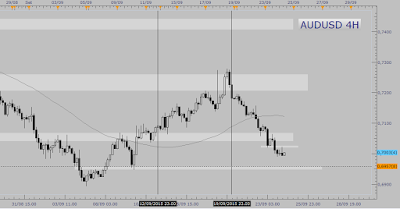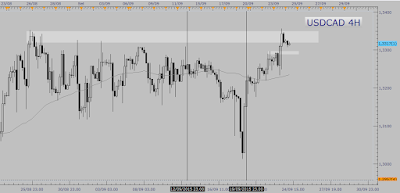Many aspiring traders approach this business in search of a quick fix, a quick path to riches. There are no barriers to entry, no official education or degree that "qualifies" a person as a successful market participant. And these are probably the main reasons why the failure rates are so high.
The other consideration is that
trading, like other jobs, requires "hands on" training and experience. Through the coaching service at FXRenew and the skype trading room CoinFlippingCorner, I attempt to do just this: provide a live learning experience where participants can interact and see my own ideas, as well as those of a multitude of different traders. It's all about establishing a successful process for you to follow.
Of course coaching and/or the skype room are not constructed as a signal service although live trades are touted/shown in there. But copying trades isn't the point. Too many people are focused on what somebody else is doing or what trades they are taking. All of that doesn't matter unless it's comparable to yourself and that means:
same psychology, same preparation, same strategy. Otherwise you are copying without understanding.
What really matters is:
a) understanding yourself (your own personal situation, your beliefs, your risk tolerance, why you approached trading in the first place, etc.)
b) understanding price (why price is moving in one direction rather than another, what kind of movement (volatility) we can expect, key levels where longs and/or shorts are likely watching,
c) understanding market drivers (day to day sentiment & flows, longer term drivers).
Without a genuine appreciation for these key items, long term success in this business is not possible.
There are generally 2 ways you can approach this business, if you're serious about succeeding.
1. You can pay tuition to the market, learning by doing. Generally this means exploring forums, reading books, browsing websites in search of a trading strategy that has an edge; testing it, adapting it to your own self, and attempting to emulate/replicate it.
Pros: you do everything yourself and can potentially save money (if you use a demo until you are consistently successful)
Cons: you can spend years attempting to find your way around the markets and climb the learning curve. This can lead to frustration and may discourage you. You may have the personal qualities necessary to succeed, but never make it because you never stumble on the right material.
2. You can pay tuition to an experienced market participant. Generally this means doing some research, finding a person you can trust and that has been an active participant in the markets for at least 10 years and has references available.
Pros: you can shorten the learning curve and avoid common pitfalls. I probably made every mistake possible, before achieving consistency. So at the very least, I can help you avoid all those mistakes!
Cons: mentoring can be expensive for some pockets.
If you're serious about your future as a trader, then feel free to contact me. I will send you a few questions that will help me understand your current situation, and your objectives, and based on your answers we can schedule a quick chat and discuss how to proceed.
Skype: JupaFX
Email: jupafx@gmail.com
I look forward to hearing from you!






















































